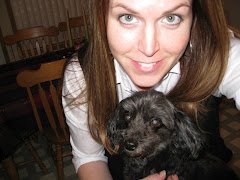In Blogs, Wikis, Podcasts, and Other Powerful Web Tools for Classrooms, Richardson describes the student learning which is generated from using wikis: students learn how to publish content; students develop and use collaborative skills; and students negotiate with others about correctness, meaning, relevance.
Profetic's site about wikis, Pedagogical Potential , describes other important educational functions of utilizing wikis, such as: they maximize interplay; work in real time; and are text-based. As best described by Richardson, “It’s a very democratic process of knowledge creation.”
Some Ways to Use Wikis in the Classroom:
* create a wiki to act as a resource list of curriculum related materials for a specific class; this could include text, links, graphics, reflections, videos, powerpoints, audio files, and spreadsheets
* use a wiki as a form of note-taking: compile links to websites, images, books, databases, etc. as a part of one’s research
* for writing workshops where students wish to peer edit
* group work projects can use wikis to share important notes and articles so that no one person is left responsible to be the “keeper” of the notes
* wikis make great forums for teachers to share lesson plan ideas; it becomes a library of lesson plan idea
*use a wiki to present a final project
Other educational Uses for Wikis:
* can be used as pathfinders or subject guides, such as Joyce Valenza’s Information Fluency wiki
* can be used for book talks, such as Meet The Stars: Books & Web 2.0
* can be used as a virtual school library website, such as Acadia Library
* can be used as a website for upcoming events or announcements for classrooms, sports teams, or organizations, such as the ALA Conference wiki
* can become used as a Professional Learning Community, such as the Teacher Librarian Wiki
Addressing teachers’ concerns about wikis
Teachers may see great potential for using wikis with their classes, but at the same time, have some reservations about how they can keep them school-appropriate, and safe from vandalism on the internet. Teachers could choose to use a wiki-site which features a password and login system (similar to blogs) to track who interacts with the site. This will provide a way of restricting those who can edit and access the site; Wikispaces has this feature. (On one the wikis I created for a course project, I set the restrictions so that only those whom I invited could make edits).
Teachers may be tempted to keep a tight control over the happenings of their class wikis. Although there must be teacher supervision and monitoring, Richardson believes that in most classes where the teacher turns responsibility and control over the students, it is usually has the best results. When students have ownership, they will protect and maintain the integrity of the site.
Another concern about wikis relates to how intellectual property is created and published. Richardson explains, “philosophically, wikis can play havoc with the traditional ideas of copyright and intellectual property.” Wiki software challenges and complexifies traditional notions of - as well as access to - authorship, editing, and publishing (Profetic). Using wikis provides even more opportunity for teachers to dialogue with their student about these issues. It becomes important that students know the differences about community collaborations and individual ownership of ideas.
In conclusion, wikis are another web 2.0 tool which have unlimited potential for teaching and learning experiences. My own learning about wikis is presently unfolding, as I am currently using them for several of my presentations in my TL-DL courses. I am fascinated by other possibilites for their use.
Subscribe to:
Post Comments (Atom)


5 comments:
Ronda I always start by listening to your voki. It makes me smile and I like the tl reference.
Thanks for the pedagogical potential link. Great info. I agree with Richardson, by letting the students have ownership of the wiki, they will take a greater responsibility in content and value the product even more than teacher led. But as a teacher just learning these tools, I am having some difficulties adjusting to 'giving up control'.
Cheers
Val
Ronda, I agree, using wikis to help students with the writing process, in particular peer editing would be great. I enjoyed working with you on the wiki-it is a great collaborative tool. I must say using the chat part is a little frustrating because people aren't there at the same time! Like we discovered wiki+telephone=successful communication! Like Val, I agree with what Richardson says about students having ownership but I will need to take a few cautious steps before I am able to practise what I believe.
I really like the teacherlibrarian wiki. It is so current and informative. I could spend alot of time on it!
cindy
Thanks for the pedagogical potential link - I've added it to my deli.cio.us account. I really liked the comment made about wikis being democratic...good point.
I agree, using wikis to help students with the writing process, in particular peer editing would be great. I enjoyed working with you on the wiki-it is a great collaborative tool.
===========================
maximilian
Social Bookmarking
Post a Comment